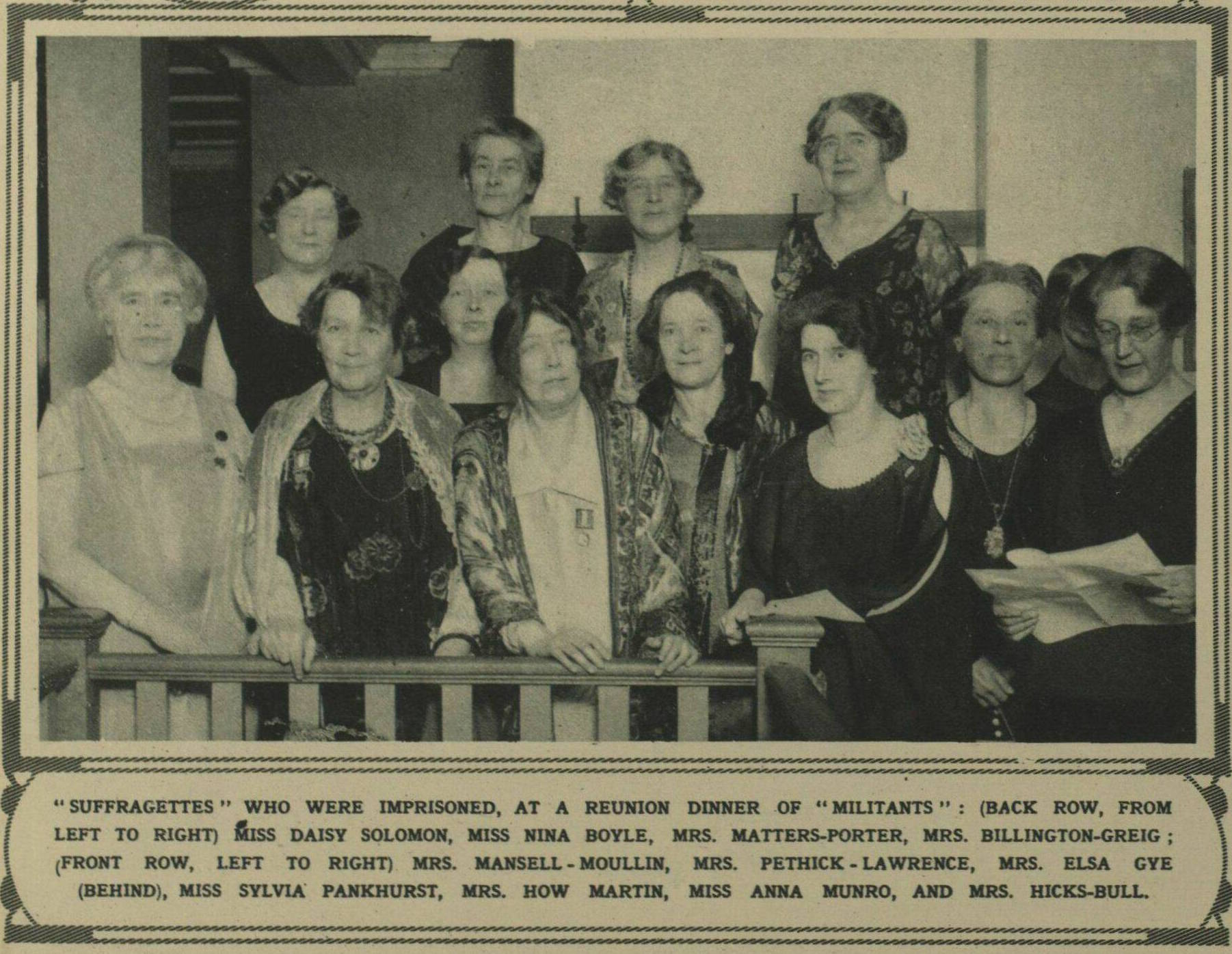

Queer Places:
Clarensville House, Sea Point, Cape Town, 8060, South Africa
 Daisy
Solomon (October 21, 1887 - 1976) was a suffragette. With her mother she was arrested numerous times during their efforts to gain the right to vote in
the United Kingdom.
Daisy
Solomon (October 21, 1887 - 1976) was a suffragette. With her mother she was arrested numerous times during their efforts to gain the right to vote in
the United Kingdom.
Born in Sea Point, daughter of Saul Solomon, famous member of the SA Parliament, she was early influenced by the liberal atmosphere of her home. Her interest in women's rights was fostered by her mother who was a forceful fighter for them. Georgiana Margaret Solomon (1844–1933) was a British educator and campaigner, involved with a wide range of causes in Britain and South Africa. She and her only surviving daughter, Daisy Solomon, were suffragettes; as members of the Women's Social and Political Union, they were imprisoned during the campaign for women's suffrage for breaking the windows of Black Rod's office. They were sentenced to one month's imprisonment in Holloway Prison. Though reticent on the subject, Daisy did admit that forced feeding and other treatment called for great endurance during that time.
Saul Solomon (1817–1892) was an influential liberal politician of the Cape Colony. A tireless defender of racial and religious equality, Saul Solomon was an important member of the movement for responsible government and an opponent of Lord Carnarvon's disastrous Confederation scheme. In 1873 he met Georgiana Margaret Thomson, the inaugural headteacher of a pioneering girls' school in Cape Colony, now known as Good Hope Seminary High School. Their views tallied on many matters, not least girls' education: he owned a first edition of Mary Wollstonecraft's polemic A Vindication of the Rights of Woman. Despite his being almost twice her age, they married. The wedding, which took place on 21 March 1874 at his home, was to have had an alteration to the standard Anglican marriage vows: neither wife nor husband wished her to promise to obey him. However, the two clergymen officiating told the couple that this would render the ceremony without authority, so the words were included. One historian describes their marriage as "idyllic".
They lived at Clarensville House in Sea Point, Cape Town for most of his life. The family enjoyed welcoming guests as varied as Cetewayo, King of the Zulus, and the future British Emperors, Princes Edward and George.
Alison Neilans died at the young age of fifty-eight on July 17 1942 after twenty-nine years as Secretary of the Association for Social and Moral Hygiene. Among the numerous mourners at her funeral, at Golders Green on July 21 1942, were her feminist friends and colleagues Rachel Crowdy, Nina Boyle, Nancy Astor, Grace Abbott (chairman of AMSH), Miss F. Barry of St. Joan’s International Alliance, Miss K. Courtney of the League of Nations Union, Daisy Solomon of the British Commonwealth League, Miss Anna Munro, Miss Marian Reeves of the Women’s Freedom League and many more from the international arms of organisations such as the Open Door Council and the International Council of Women. Bessie Rischbieth of the Australian Federation of Women Voters represented Australian women.
Overshadowed by this is the fact of her social work in the East End of London where Daisy Solomon taught in girls' clubs. After World War II she returned to South Africa to live with her brother Judge Saul Solomon in St James, Cape. During that time she spent two years sorting and cataloguing family papers. Those of historical interest she finally presented to the SA Library.
She will be long remembered by the Black Sash for the balanced judgement she contributed when asked. In her home she extended a loving welcome to a large circle of relatives and friends.
My published books: